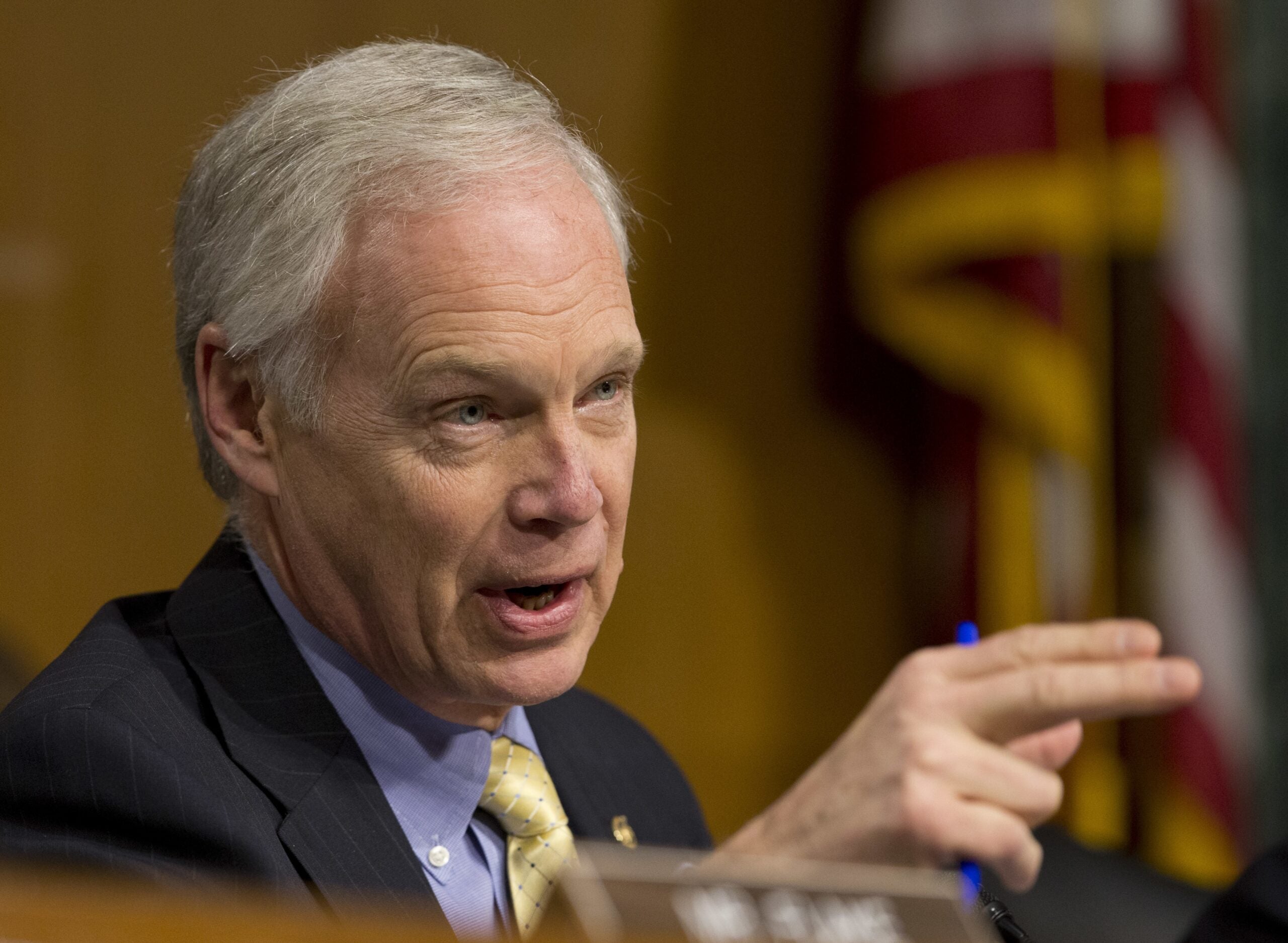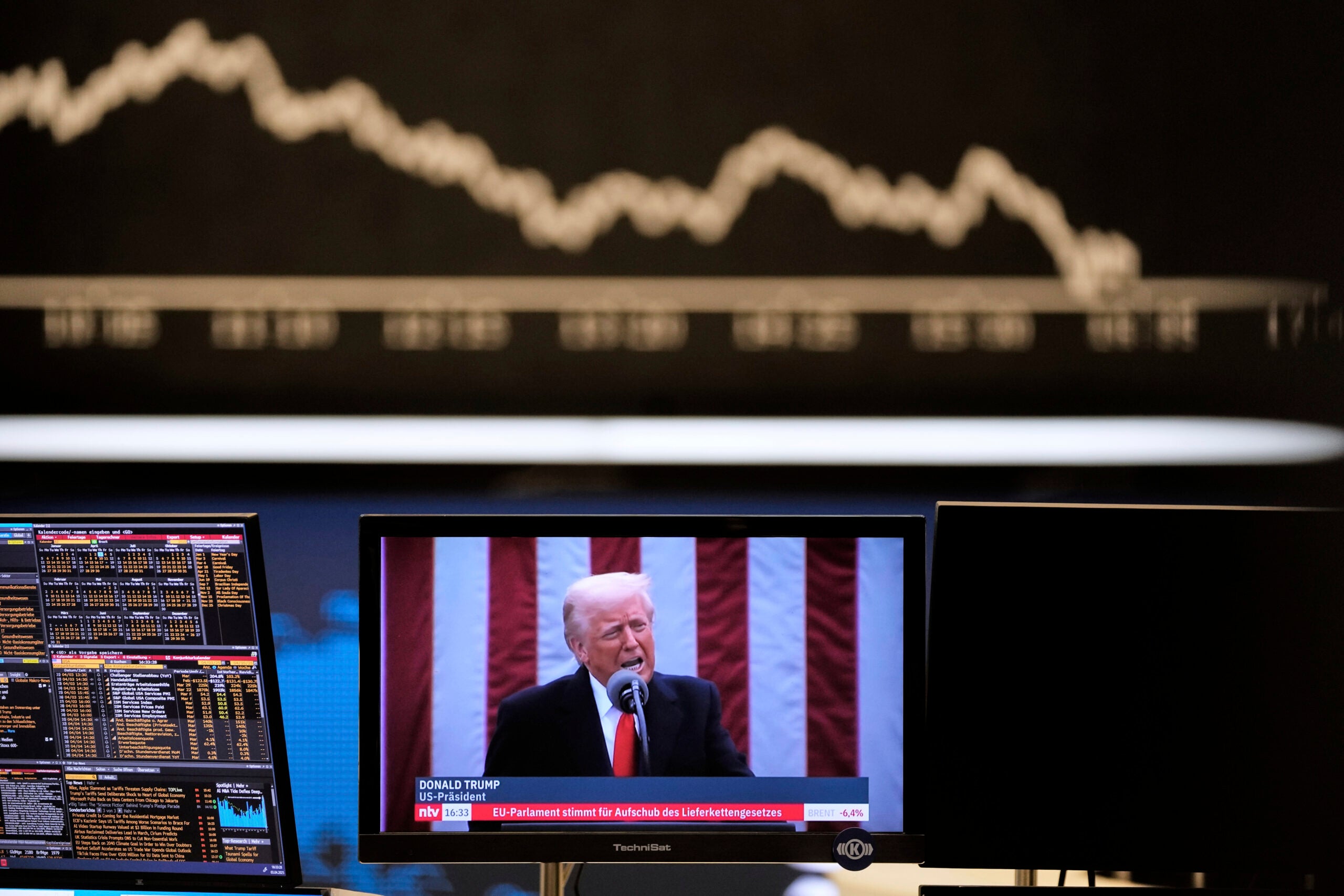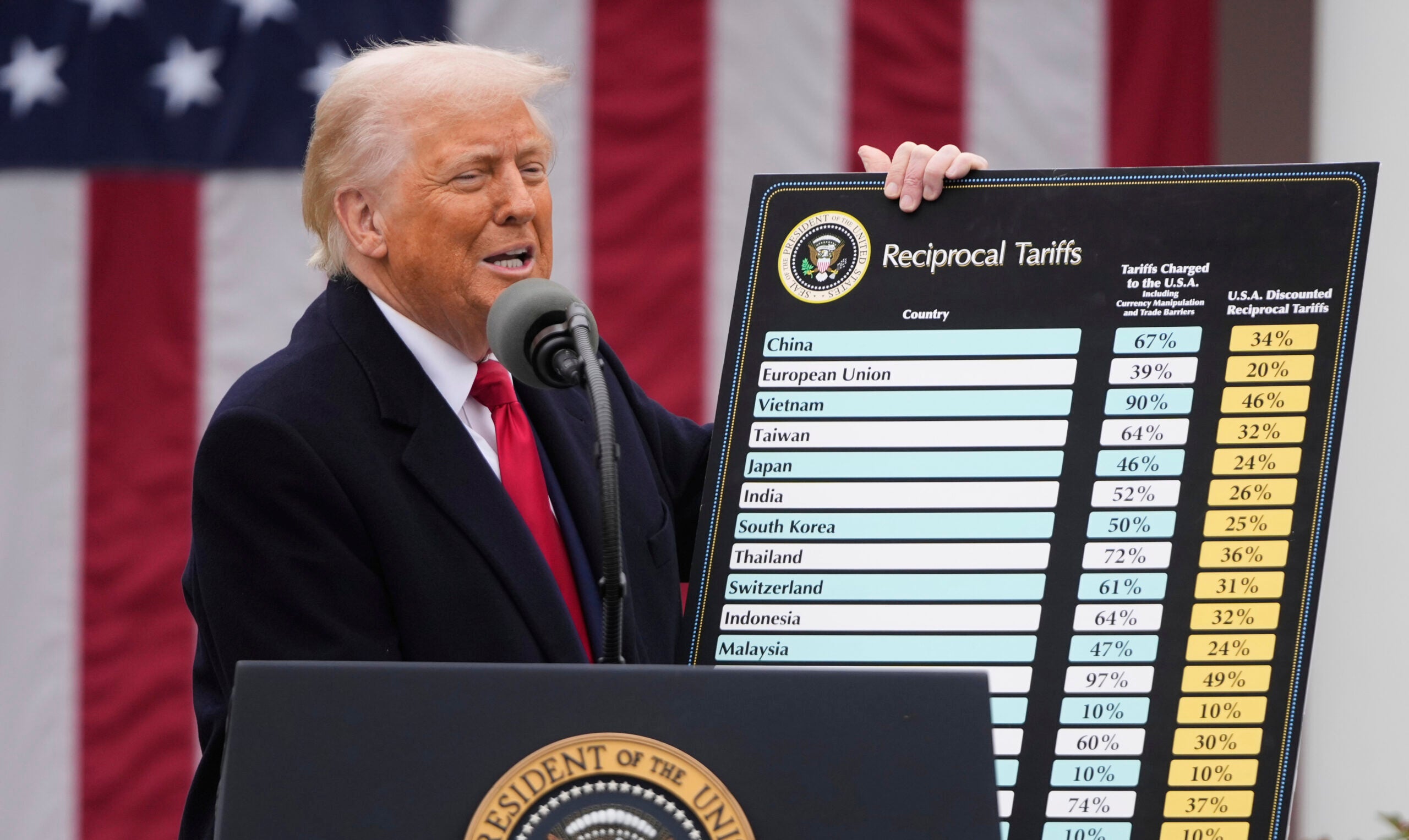Wisconsin Republican U.S. Sen. Ron Johnson has joined a bipartisan group of lawmakers in calling on the Trump administration to pull back on increased tariffs.
Johnson was one of four senators who spoke in support of advocacy group Tariffs Hurt the Heartland during a press conference on Wednesday.
Johnson said President Donald Trump’s tariff strategy has brought other countries like China, Canada and Mexico to the negotiating table. But he said the president should lift the increased taxes on Mexico and Canada.
Stay informed on the latest news
Sign up for WPR’s email newsletter.
“If you’re using the tariffs as leverage, if you get an agreement with countries that have come to the table because of that, if you don’t relieve them of the tariffs, you’re going to marginalize that as an effective leverage point for other negotiations,” Johnson said.
Trump and the other North American leaders signed the new United States-Mexico-Canada Agreement in November 2018. Congress still has to approve the trade deal before it can go into effect.
A new report from a national research firm estimates Wisconsin could lose more than 14,000 jobs over the next three years if the higher tariffs continue.
Commissioned by Tariffs Hurt the Heartland, Trade Partnership Worldwide used data from the federal government to estimate the impact of increased tariffs from and against the U.S.
Laura Baughman, president of the firm, said they use a data model that estimates both the negative and positive impacts of higher tariffs.
“When you raise the price of anything, there are ripple effects throughout the economy,” Baughman said. “(Tariffs) benefit companies that are in the industries that are being protected, like the steel industry or in U.S. industries that would produce goods that might compete with imports from China. But then of course, they also impose heavy costs on customers of the goods that are imported.”
Baughman said the report looks at the current tariff scenario, starting with higher U.S. taxes on imports of steel and aluminum that began in March 2018 and the retaliatory tariffs and quotas that have been exchanged as a result. It also assumes the Trump administration will move forward with their plan to raise tariffs on another round of Chinese goods if a new trade agreement isn’t reached by March 1.
If these tariffs continue, the firm estimates U.S. gross domestic product would decline 0.37 percent annually. The report also estimates exports of American products would decline by 5.6 percent, or $131.7 billion annually.
Baughman said the services sector of the economy takes the biggest hit from increased tariffs.
“Construction is a big user of steel and aluminum and the cost of building things has gone way up thanks to the steel and aluminum tariffs. Whether it’s a remodel project on your house or it’s a road, it’s all costing more,” Baughman said.
She said higher costs means less demand for construction services, which could lead to job loss in that industry.
In the manufacturing sector, the report found there are some job gains and some losses. But the agriculture industry is likely to lose 59,300 jobs nationally over the next three years.
In response to the report, Johnson acknowledged that increased tariffs on imported products have helped American manufacturers be more competitive on the world market. But he said even that success could lead to more manufacturing being done outside the U.S.
“There will be a great deal of pressure on U.S. manufacturers. If they want to remain globally competitive and to maintain their global international markets, the incentive will be to move their manufacturing overseas, totally contrary to what this administration is doing,” Johnson said.
Johnson also expressed concern about the agriculture industry. He said competing countries continue to increase their production while Wisconsin producers face lower demand because of the tariffs. He worries that demand could be permanently lost the longer the tariffs are in place.
Wisconsin Public Radio, © Copyright 2025, Board of Regents of the University of Wisconsin System and Wisconsin Educational Communications Board.





